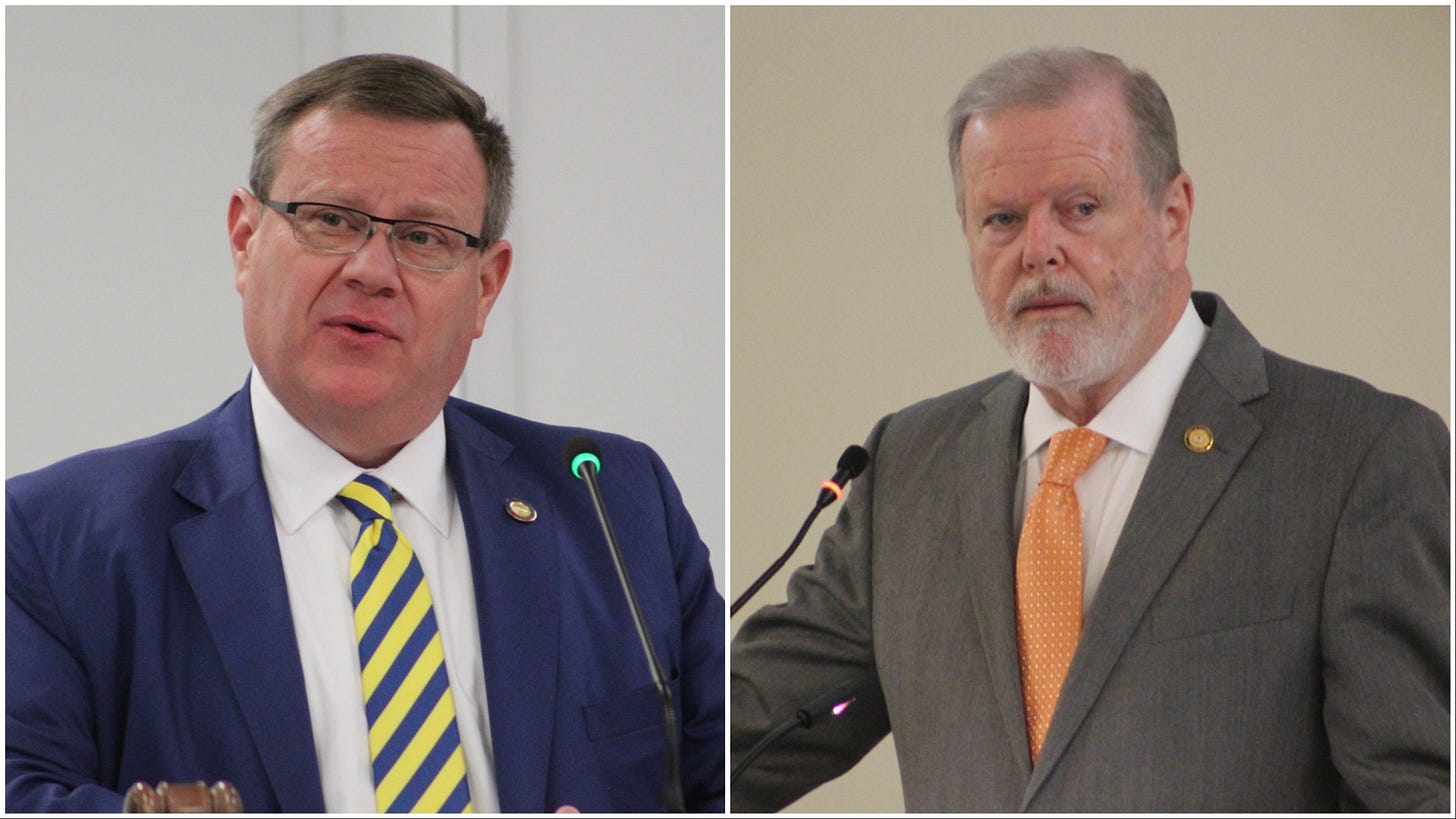The Last Dance
GOP lawmakers have failed to deliver on top policy priorities in Tim Moore’s waning days as House speaker. A diminished relationship between Moore and Senate leader Phil Berger is partly to blame.

If you had said at the beginning of the year that North Carolina Republicans wouldn’t pass a budget adjustments bill during the short session, it would have come as a mild surprise.
If you had said the GOP supermajority wouldn’t pass a bill compelling local sheriffs to cooperate with federal immigration authorities (as they had twice passed previously, but failed to enact due to Gov. Roy Cooper’s veto), it would have been a shock.
And if you had said Republicans who universally support expanding the state’s school voucher system would fail to clear a backlog of roughly 55,000 families trying to get their children an at least partially subsidized private schooling option, almost no one would have believed you.
Fast forward to mid-August, Republicans have failed to deliver on key priorities, including ones with universal agreement. Thus far, 2024 has been the least productive year in the General Assembly since Republicans took control of both chambers in 2011.
How did we get here? Lawmakers, advisers and political onlookers see a fractured relationship between outgoing House Speaker Tim Moore and Senate leader Phil Berger and a widening power imbalance as the underlying issues.
“The speaker is not going to be back next time,” said Republican Sen. Danny Britt of Robeson County, alluding to Moore’s all-but-assured congressional victory this year after serving a record 10 years as speaker. “That may have changed the dynamic to a certain extent.”
Moore’s response to the pushback: “They know absolutely nothing about what they’re talking about.”
Keep reading with a 7-day free trial
Subscribe to Anderson Alerts to keep reading this post and get 7 days of free access to the full post archives.



